- Our DNA
- Innovation Lab
- Publications
- Energy Transparency
- Press Corner
- Events
- Contact
- Subscribe
- Membernet
- My account
- Search
- Follow us at LinkedIn
- Follow us on Twitter
- Follow us on Instagram
From June 15th to June 16th, the GIE Annual Conference took 300 energy sector participants on an immersive journey,
exploring the near, medium, and long-term perspectives of the European Union’s future.
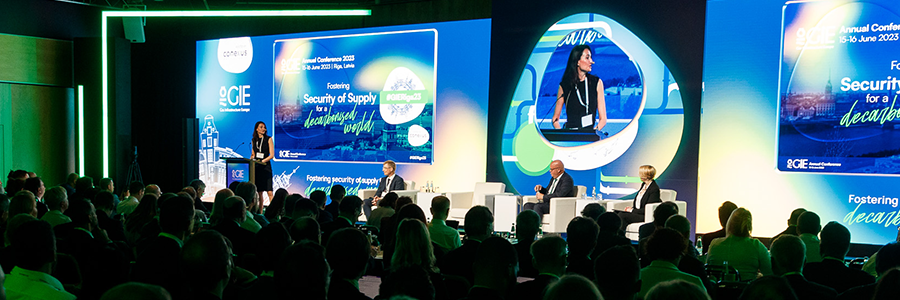
With more than 50 experts from various sectors, regions, generations and genders, the diversity of the European energy ecosystem was represented on stage and in the audience. EU Member States representatives, European Commission and Parliament met experts from the academic, gas, wind and electricity sectors over two days of interactive sessions.
Global gas trade, Security of supply, Hydrogen Regulation, Biomethane development, Electricity/Wind and gas cooperation, digitalisation including AI technologies, Methane emissions mitigations… The different dimensions of the transformation of the European energy system were tackled. Notable speakers, including EU Commissioner for Energy Kadri Simson, provided valuable insights into the role gas and molecule infrastructure will play in the short, mid and long terms.
“In the near future, natural gas will be crucial for Europe’s security of energy supply. However, our long-term climate and energy goals have not changed. Europe’s future is still homegrown renewable energy. Gas infrastructure will play a role here. It will be vital in transitioning towards biogas and clean hydrogen, and I believe we are on the right track.”
EU Commissioner Kadri Simson. Watch the full speech here.
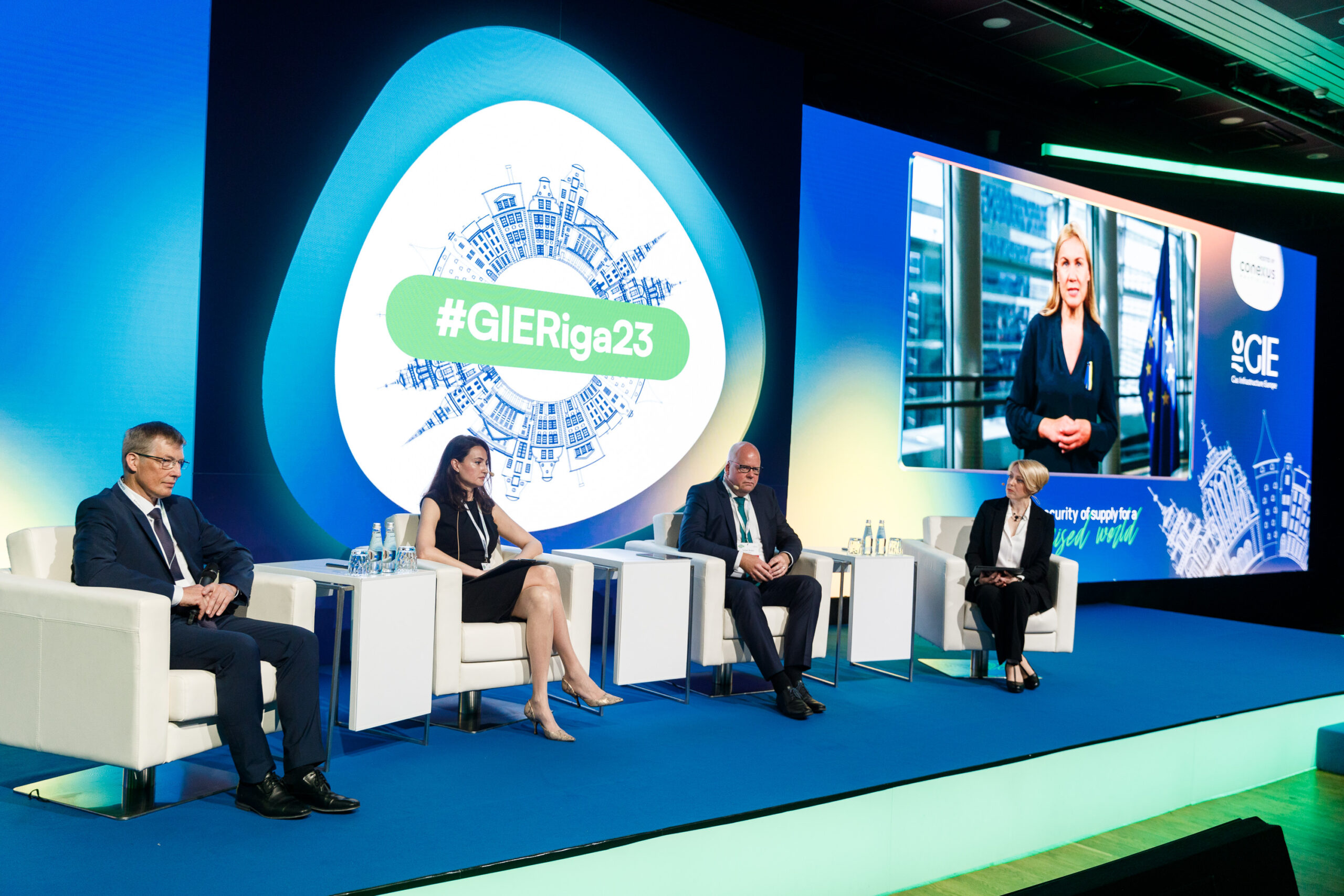
Discussions at the conference shed light on the growing importance of renewable and low-carbon gases in the energy transition. Hydrogen and biomethane were identified as key solutions for decarbonising the energy system while maintaining the security of supply. The potential of biomethane in the EU’s clean energy mix was highlighted, and obstacles to its development were addressed, including missing targets. The global trade of hydrogen and the integration of renewable and low-carbon gases in the most cost-efficient manner were also discussed, emphasising the need for collaborative efforts to produce and export hydrogen.

We had the honour of welcoming MEP Maria Spyraki, Shadow rapporteur on behalf of EPP on the INI report for hydrogen bank on stage for a discussion on hydrogen regulation: “It is key to establishing solid foundations for the hydrogen market to develop. It relies on the existence of a well-functioning market and an optimistic approach. Providing predictability and stability to the markets is essential. This entails a comprehensive market encompassing research, innovation, and support for uptake. Furthermore, it necessitates the integration of demand and supply. Thus, it is crucial to advocate for a coherent legislative framework.”
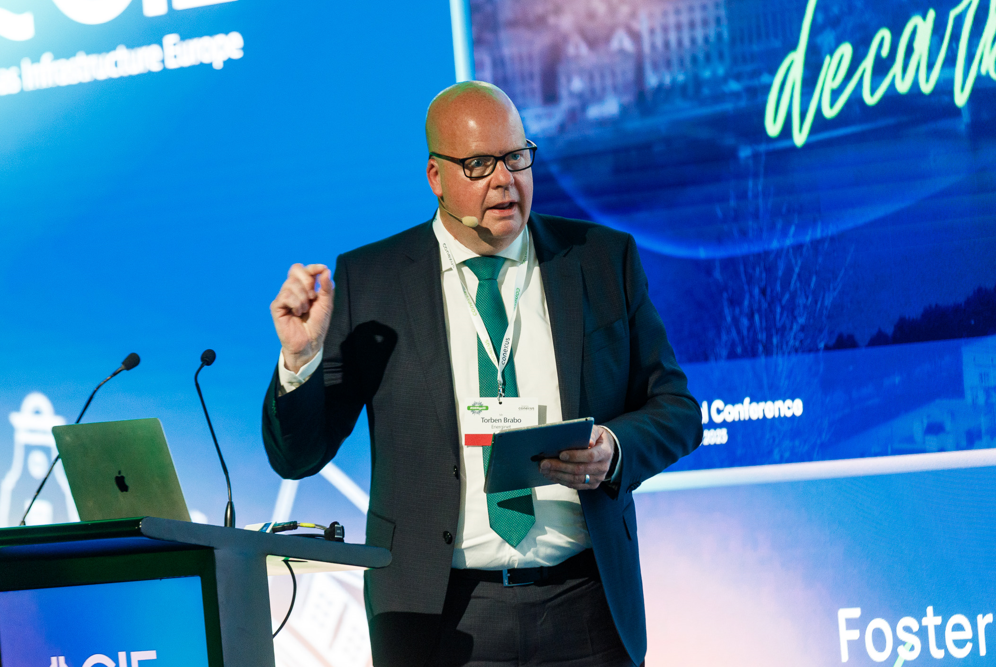 “We, as gas infrastructure operators, embraced the responsibility that was entrusted to us last year. Our efforts have been remarkable, with multiple innovations in gas market transparency tools, increased system utilisation, rapid construction of pipelines, FSRU’s and storage facilities, and a steadfast commitment to decarbonisation. The achievements of our members and GIE have been truly fantastic, and I take great pride in being a part of the gas sector.” Reminded Torben Brabo, GIE President. “However, amidst the normalisation of prices in many countries, we must not overlook the past crises. While the electricity emergency measures have ceased, the gas measures have been extended, and permitting challenges again hinder infrastructure development. Although we anticipate the possibility of a challenging winter ahead, we are far better prepared than we were last year, and we stand united as a sector”. He added.
“We, as gas infrastructure operators, embraced the responsibility that was entrusted to us last year. Our efforts have been remarkable, with multiple innovations in gas market transparency tools, increased system utilisation, rapid construction of pipelines, FSRU’s and storage facilities, and a steadfast commitment to decarbonisation. The achievements of our members and GIE have been truly fantastic, and I take great pride in being a part of the gas sector.” Reminded Torben Brabo, GIE President. “However, amidst the normalisation of prices in many countries, we must not overlook the past crises. While the electricity emergency measures have ceased, the gas measures have been extended, and permitting challenges again hinder infrastructure development. Although we anticipate the possibility of a challenging winter ahead, we are far better prepared than we were last year, and we stand united as a sector”. He added.
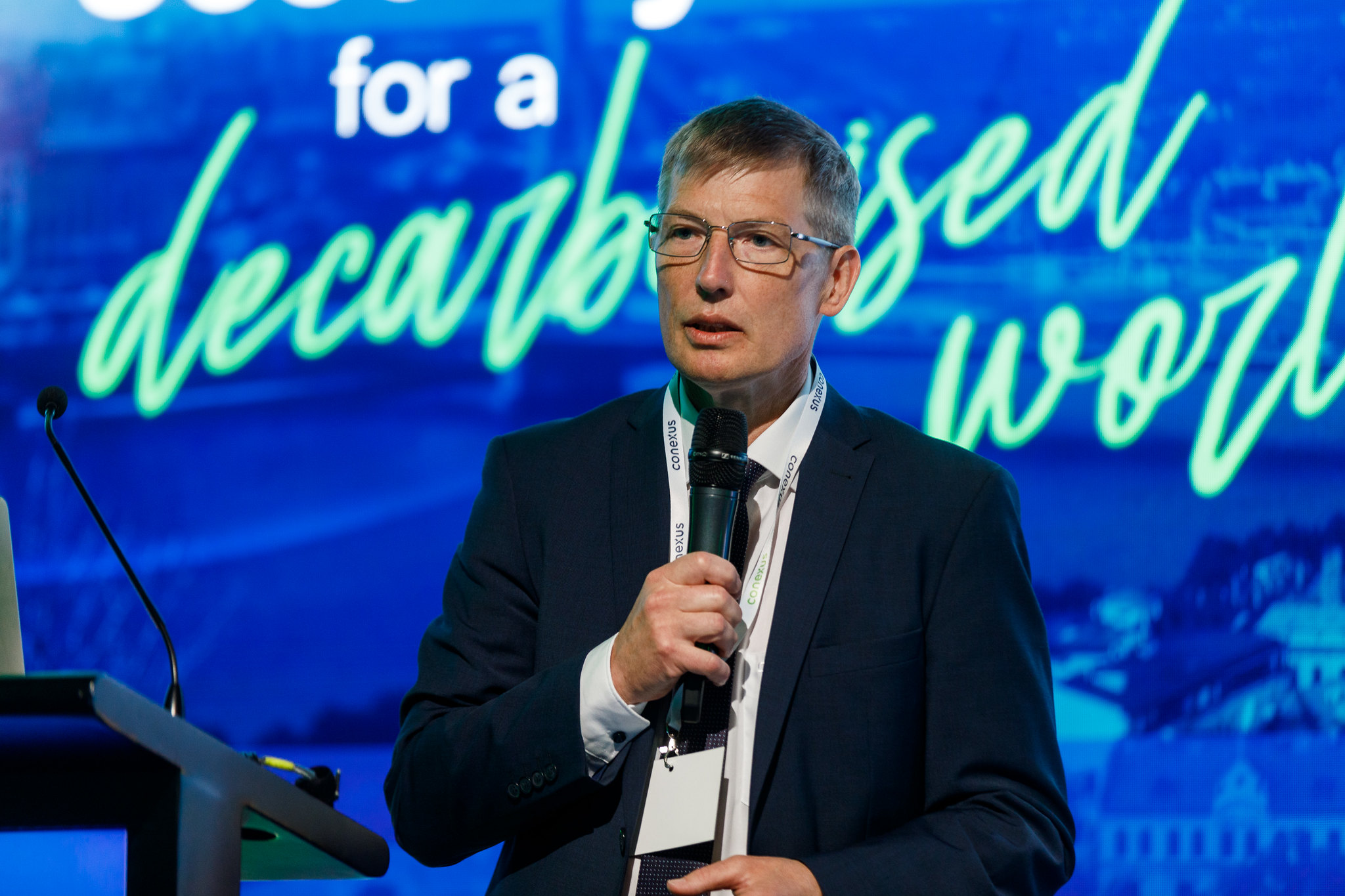
“The integration of the Regional Finnish and Baltic gas markets emerged as a success story, demonstrating its resilience during the recent gas supply crisis. “Conexus Baltic Grid is a solid unified storage and transmission operator, and we should really see us integrated into the regional market which includes Finland, Estonia, Latvia, and Lithuania. We are almost one regional market since 2020 with the BalticConnector, the bi-directional natural gas pipeline undersea that was built at that time. The collaborative efforts of all stakeholders, including customers, market participants, and government institutions, played a crucial role in effectively managing the situation.” Uldis Bariss, Conexus Baltic Grid CEO.
Mr Bariss stressed that the industry acknowledged the need to remain prepared for future challenges, emphasising the importance of delivering security of supply, affordable services, and transitioning to a decarbonised world. Watch the full video.
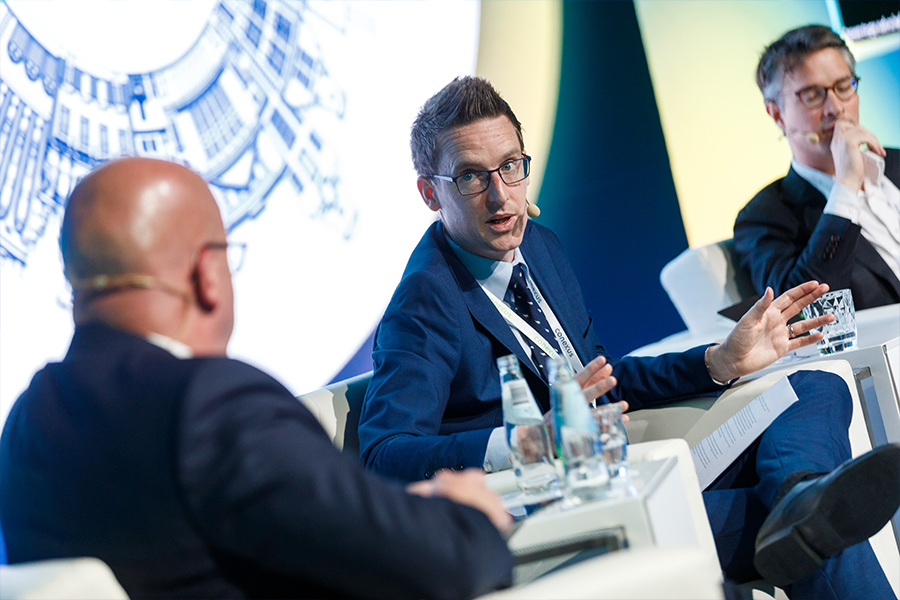 Several new gas interconnections becoming operational in Central and Southeastern Europe were highlighted during the conference. These interconnections have helped member states reduce their reliance on Russian gas and enhance diversification. Europe’s gas network is already well-integrated, boasting more interconnectors and LNG terminals than ever before. Completing ongoing gas infrastructure projects will further increase access to the global LNG market, ensuring that most EU member states have multiple sources of supply. The aim is to achieve a full phase-out of Russian gas with a limited number of additional gas projects. Building on the synergies that exist between gas and electricity will be as well pivotal.
Several new gas interconnections becoming operational in Central and Southeastern Europe were highlighted during the conference. These interconnections have helped member states reduce their reliance on Russian gas and enhance diversification. Europe’s gas network is already well-integrated, boasting more interconnectors and LNG terminals than ever before. Completing ongoing gas infrastructure projects will further increase access to the global LNG market, ensuring that most EU member states have multiple sources of supply. The aim is to achieve a full phase-out of Russian gas with a limited number of additional gas projects. Building on the synergies that exist between gas and electricity will be as well pivotal.
“Sector integration is about cooperation. We have a common goal, which is climate neutrality. While we can agree to disagree on how many electrons vs molecules will be in the mix by 2050, nevertheless, clean molecules and electrons should work together to bring us there”.
Cillian O’DONOGHUE, Eurelectric Policy Director. Watch Wind, Electricity and Gas discussion.
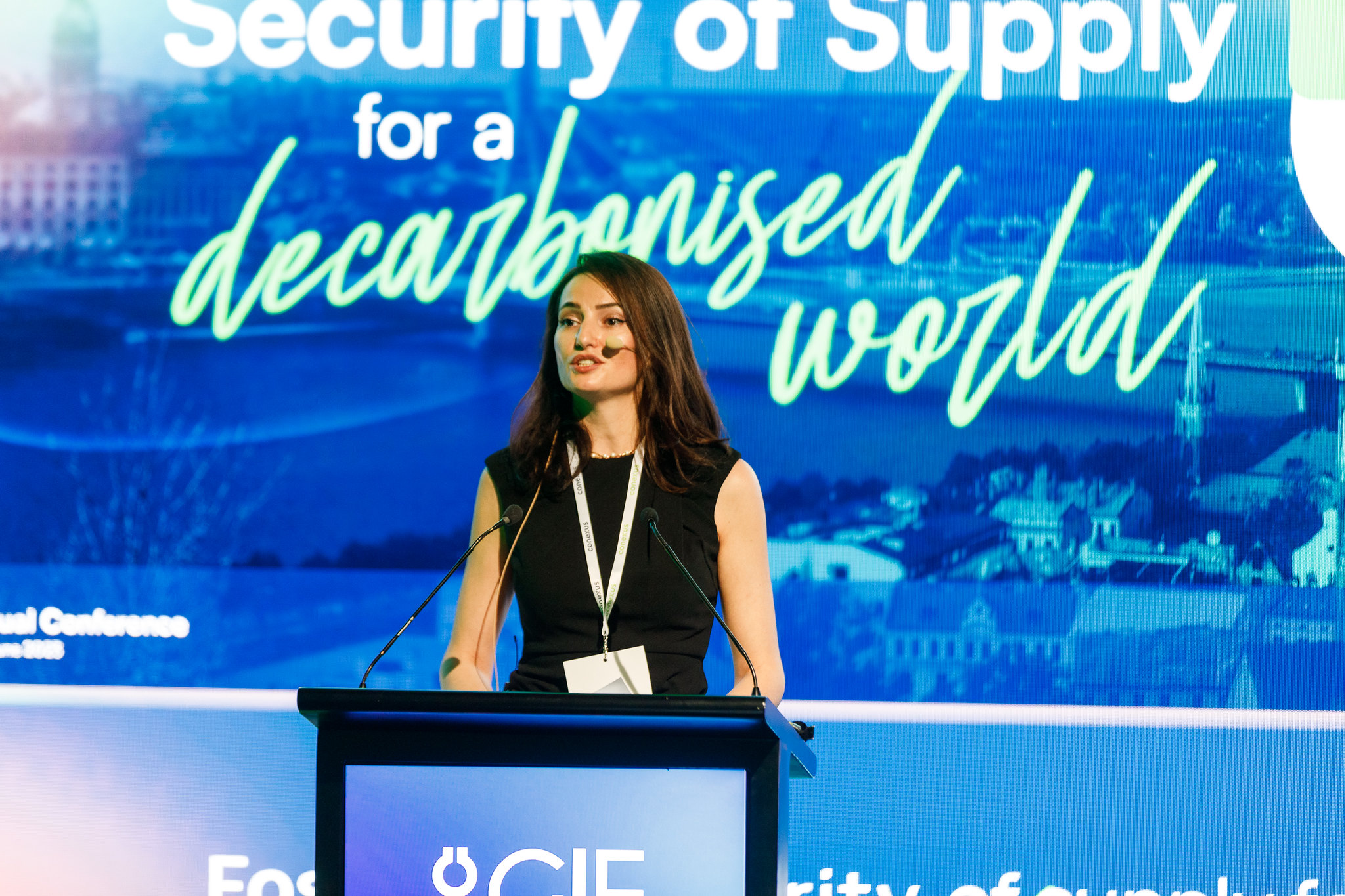 Boyana Achovski, GIE Secretary General stressed that safeguarding Diversity, Equity & Inclusivity in the energy sector was part of the duty of each leader. “As players in the gas infrastructure industry, each of us has a crucial role to play in shaping the envisioned bright and secure future for Europe. Your leadership, innovation, and vision are essential. However, this responsibility doesn’t solely rest on the shoulders of CEOs and their teams; it is a shared obligation for which we urge the EU institutions to empower us by establishing a cohesive regulatory framework that allows us to unleash our full potential.
Boyana Achovski, GIE Secretary General stressed that safeguarding Diversity, Equity & Inclusivity in the energy sector was part of the duty of each leader. “As players in the gas infrastructure industry, each of us has a crucial role to play in shaping the envisioned bright and secure future for Europe. Your leadership, innovation, and vision are essential. However, this responsibility doesn’t solely rest on the shoulders of CEOs and their teams; it is a shared obligation for which we urge the EU institutions to empower us by establishing a cohesive regulatory framework that allows us to unleash our full potential.

Ms Achovski moderated a cross-generational discussion which brought different perspectives on the synergies that exist between DEI and effective energy transition. Ms Achovski stated: “Collectively, we possess the power to shape a future that not only prioritises energy security and sustainability but also promotes inclusivity and fairness. As we move ahead, let us be guided by these values, striving to create an energy transition that leaves no one behind. Leverage collective wisdom is key to constructing a decarbonised world where diversity and inclusivity are pillars of our success.”
The event was organised at the heart of the Baltic in the beautiful Riga, the capital of Latvia. A warm thank you goes to Conexus Baltic Grid which had the privilege of hosting this 20th edition of the GIE Annual Conference in its capital. Conexus Baltic Grid is a unified natural gas transmission and storage operator in Latvia. It operates one of the most modern natural gas storage facilities in Europe: Inčukalns underground gas storage. This facility is an essential strategic object in the whole Baltic Sea region, providing energy
security and independence for the whole region. Inčukalns UGS is seamlessly
integrated into the Finnish-Baltic gas market.
Learn more: https://www.conexus.lv/about-company
Stay tuned to register for GIE Annual Conference 2024





































































